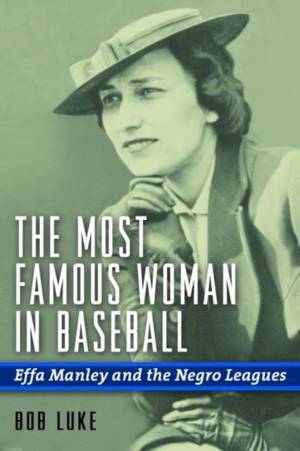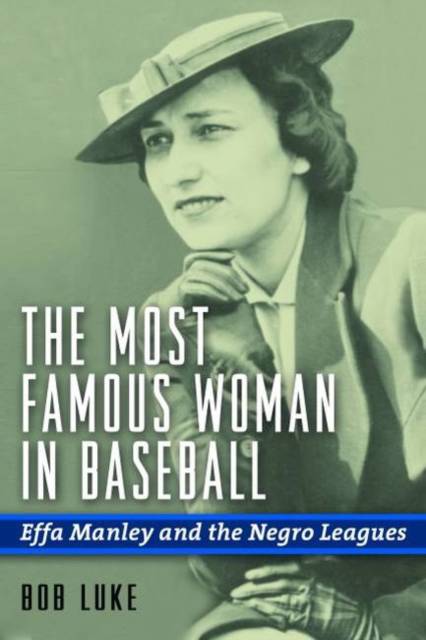
- Afhalen na 1 uur in een winkel met voorraad
- Gratis thuislevering in België vanaf € 30
- Ruim aanbod met 7 miljoen producten
- Afhalen na 1 uur in een winkel met voorraad
- Gratis thuislevering in België vanaf € 30
- Ruim aanbod met 7 miljoen producten
Zoeken
€ 33,95
+ 67 punten
Omschrijving
Never one to mince words, Effa Manley once wrote a letter to sportswriter Art Carter, saying that she hoped they could meet soon because "I would like to tell you a lot of things you should know about baseball." From 1936 to 1948, Manley ran the Negro league Newark Eagles that her husband, Abe, owned for roughly a decade. Because of her business acumen, commitment to her players, and larger-than-life personality, she would leave an indelible mark not only on baseball but also on American history. Attending her first owners' meeting in 1937, Manley delivered an unflattering assessment of the league, prompting Pittsburgh Crawfords owner Gus Greenlee to tell Abe, "Keep your wife at home." Abe, however, was not convinced, nor was Manley deterred. Like Greenlee, some players thought her too aggressive and inflexible. Others adored her. Regardless of their opinions, she dedicated herself to empowering them on and off the field. She meted out discipline, advice, and support in the form of raises, loans, job recommendations, and Christmas packages, and she even knocked heads with Branch Rickey, Bill Veeck, and Jackie Robinson. Not only a story of Manley's influence on the baseball world, The Most Famous Woman in Baseball vividly documents her social activism. Her life played out against the backdrop of the Jim Crow years, when discrimination forced most of Newark's blacks to live in the Third Ward, where prostitution flourished, housing was among the nation's worst, and only menial jobs were available. Manley and the Eagles gave African Americans a haven, Ruppert Stadium. She also proposed reforms at the Negro leagues' team owners' meetings, marched on picket lines, sponsored charity balls and benefit games, and collected money for the NAACP. With vision, beauty, intelligence, discipline, and an acerbic wit, Manley was a force of nature--and, as Bob Luke shows, one to be reckoned with.
Specificaties
Betrokkenen
- Auteur(s):
- Uitgeverij:
Inhoud
- Aantal bladzijden:
- 256
- Taal:
- Engels
Eigenschappen
- Productcode (EAN):
- 9781597975469
- Verschijningsdatum:
- 1/03/2011
- Uitvoering:
- Hardcover
- Formaat:
- Genaaid
- Afmetingen:
- 155 mm x 229 mm
- Gewicht:
- 498 g

Alleen bij Standaard Boekhandel
+ 67 punten op je klantenkaart van Standaard Boekhandel
Beoordelingen
We publiceren alleen reviews die voldoen aan de voorwaarden voor reviews. Bekijk onze voorwaarden voor reviews.











